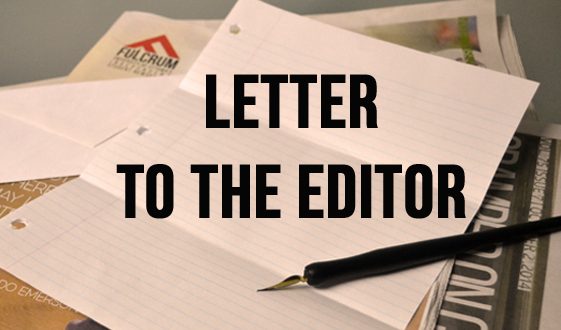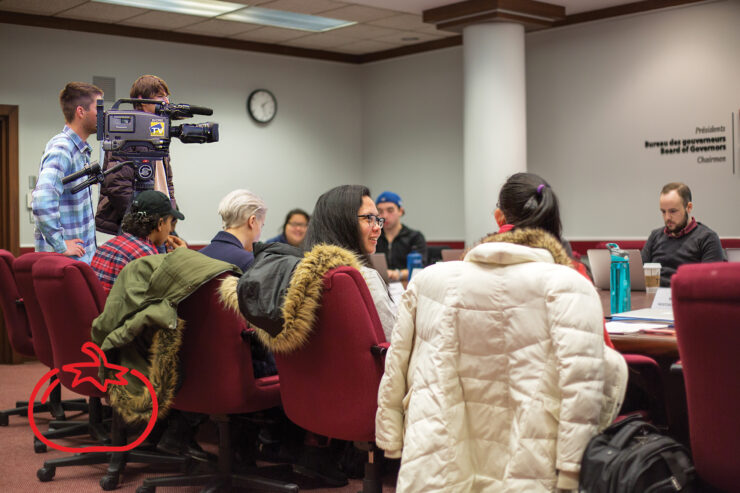Despite two very ugly, mean-spirited, and failed attempts at both the Student Federation of the University of Ottawa Board of Administration (BOA) meeting last November and the General Assembly this month, the relentless and bigoted Boycott, Divest, Sanctions (BDS) movement will be back at it yet again.
This time it will be presented at the next BOA. As usual, though, the BDS movement was again be shoved down the throats of a student body that is for the most part either indifferent to it all, annoyed, or even offended by a blatantly discriminatory cause that seems to be consuming more of our student government’s attention than more relevant issues—like, say, tuition fees.
Not only does this movement bear zero relevance to campus affairs at the University of Ottawa (surely social justice and international human rights are causes with which all of us should align, but to single out and demonize Israel—a country that is hardly among the world’s biggest culprits, never mind within its tiny region—is hardly a productive way to promote those causes); it carries far worse implications than the mere annoyance of the average student.
The controversy of the BDS movement comes from its discrimination and victimization towards Jewish students on campus. Indeed, singling out and targeting Israel—the Jew among the world’s nations—while being willfully blind to all other nation’s transgressions is a form of discrimination.
What is more, taken most charitably, those crimes for which Israel is being charged by the BDS movement rest on shaky premises and historical revisions; at their worse, they are rooted in blatant falsehoods.
Beyond the egregious hypocrisy of the BDS movement, its fallout—that is, the behavior which the movement itself both encourages and is complicit in—is perhaps the most troubling part of it all. Far from the mere boycott of current Israeli government policies involving Palestinians that it claims to be, the BDS movement and its supporters persistently shouts down and antagonizes anyone on campus with any ties to Israel whatsoever.
Nonpartisan Jewish campus groups with no ties to the current Israeli administration are frequent victims of this form of bullying from the BDS movement. Take this year at the U of O, for example, when the SFUO’s outgoing VP equity, Leila Moumouni-Tchouassi, disbanded Hillel Ottawa simply because many of its members support Israel (Jews liking Israel—go figure!) Other schools infected by the BDS see Israeli academics, many of whom are liberals and themselves critics of their government’s policies, barred from speaking on campus.
Another common trope of BDSers and antisemites alike is to hold all pro-Israel Jews accountable for all of the policies and actions of that nation’s government. More specifically, and highly popular in today’s political climate, is to conflate all Jewish support for Israel as support for Israel’s current Prime Minister Benjamin Netanyahu.
I was personally exposed to this type of senseless and inappropriate rhetoric when, at last October’s BOA meeting, one of the school’s elected Faculty of Social Sciences representatives, Gabi Ghannoum, challenged a room full of pro-Israel Jewish students to “call up” our “good buddy” Benjamin Netanyahu.
Should a Russian student, proud of their Russian heritage, similarly be charged with answering for all the sins of Vladimir Putin’s government? How about an American—ought they be responsible for Donald Trump’s policies? Is a Canadian’s belief in Canada’s right to exist ever conflated with supporting every policy ever enacted by a Canadian government? Why, then, is every Jew who supports Israel’s existence automatically made answerable to its government’s policies? Why are Jews held to such a double standard?
Finally, the true intention of the BDS movement always becomes clear as their dialogue swiftly and unapologetically shifts from defending the rights of Palestinians to the delegitimization and dismantling of the State of Israel.
The reality is, Israel, like every single country in the world—including Canada and the United States—is imperfect. A nation always has room to improve, from its justice system to its economic equality to its treatment of minorities; and Israel is no exception to that. Yet, somehow only Israel—a country which has faced the threat of total annihilation and the extermination of its Jewish population since the day it was established—must also answer questions regarding its existence when dealing with criticisms of its government’s policies.
Israel is no different than any Western democracy when it comes to its democratic institutions, its fundamental freedoms, its legitimacy as a nation, as well as its shortcomings as a nation. Why, then, must only Israel constantly defend its right to exist?
I’ll let you answer that one.




